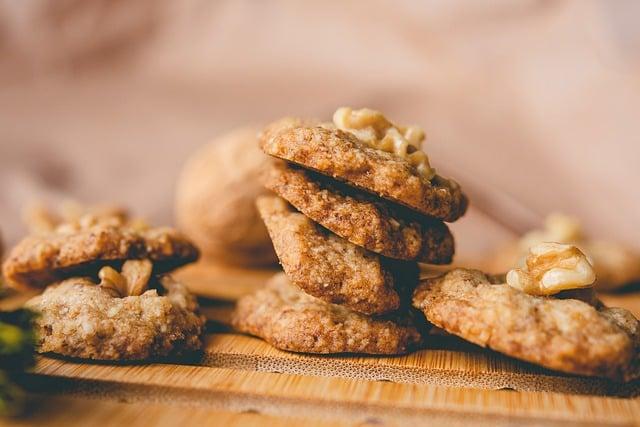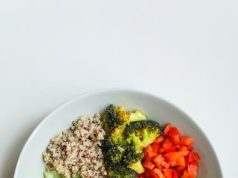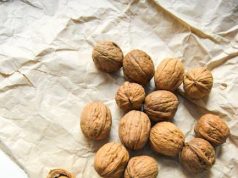In the quiet hours when the world slows down and night wraps its gentle arms around us, a common question stirs in the minds of many: is it okay to indulge in a late-night snack before bed? This seemingly simple query is tangled in a web of nutritional science, cultural habits, and personal routines. As the moonlight casts its glow on our kitchens, the debate simmers between those who argue that nighttime nibbling disrupts our health and those who find solace in a pre-slumber treat. Join us as we explore the nuances of this age-old dilemma, unraveling myths and truths to uncover whether the midnight munch is a friend or foe to our well-being.
Nighttime Nibbles: Understanding the Science Behind Late-Evening Eating
Delving into the science of late-evening eating reveals a complex interplay of factors influencing our nighttime cravings. Our body’s internal clock, or circadian rhythm, naturally decreases metabolism in the evening, which might suggest that late-night eating could lead to weight gain. However, research indicates that it isn’t merely the timing of the meal but rather the quality and quantity of the food consumed that significantly impacts health.
- Metabolic Rate: Metabolism tends to slow down at night, making it crucial to be mindful of portion sizes.
- Sleep Quality: Eating certain foods before bed, like those high in sugar or caffeine, can disrupt sleep patterns.
- Hormonal Balance: Late-night snacking might affect hormones like insulin and cortisol, influencing how the body stores fat.
To satisfy nighttime hunger without adverse effects, consider opting for lighter, nutrient-dense snacks. Think of options like a handful of nuts, a small bowl of yogurt, or a slice of whole-grain toast. By focusing on balance and moderation, you can enjoy your late-night nibbles without guilt.

Decoding Hunger: When Your Body Really Needs a Midnight Snack
It’s past midnight, and the fridge is calling your name. But how do you know if it’s true hunger or just a craving? Listening to your body’s cues is key. Sometimes, your late-night hunger is more about your body’s genuine need for energy, especially if you’ve had a particularly active day or skipped a meal. Here are some signs that your body might really need a snack:
- Your stomach is growling or feels empty.
- You feel light-headed or weak.
- You’re experiencing difficulty falling asleep due to hunger.
Recognizing these signals can help you make more mindful decisions. If you decide to eat, opt for something light and nutritious. Smart snack choices can include a small bowl of oatmeal, a banana, or a handful of nuts. These options can satisfy your hunger without disrupting your sleep cycle, ensuring you wake up refreshed and ready for the day.

Balancing Act: Nutritional Choices for Pre-Sleep Satisfaction
Navigating the labyrinth of late-night cravings can often feel like a tightrope walk. As the clock ticks closer to bedtime, the allure of a snack can be irresistible, yet the quest for a restful night’s sleep remains paramount. Finding harmony in this dance requires a thoughtful approach to your pre-sleep nutritional choices. Balancing the scale between satisfying hunger and ensuring sleep quality involves selecting foods that promote relaxation without disrupting digestion.
Consider incorporating these sleep-friendly foods into your nighttime routine:
- Almonds: A handful of these nuts can provide a source of melatonin and magnesium, both known to enhance sleep quality.
- Greek Yogurt: Rich in protein, it helps curb hunger while offering probiotics that aid digestion.
- Kiwi: This vibrant fruit not only satisfies a sweet tooth but also contains serotonin, which may improve sleep onset and duration.
Choosing these options can provide a comforting sense of fullness while respecting the body’s natural rhythm, offering a deliciously balanced approach to nighttime nourishment.

Restful Nights: Crafting a Bedtime Routine That Includes Eating
Incorporating a light snack into your nighttime ritual can be both soothing and beneficial, as long as it’s done mindfully. Key considerations include the type of food you choose and the timing of your snack. Foods rich in tryptophan, such as turkey or nuts, can promote relaxation, while a small bowl of oatmeal or a banana can stabilize blood sugar levels, potentially aiding sleep. It’s crucial to avoid heavy, greasy, or spicy foods that might disrupt your rest.
- Tryptophan-rich foods: Turkey, nuts, seeds
- Light carbohydrates: Whole grain toast, oatmeal
- Fruits: Bananas, cherries
Timing is equally important. Aim to eat your snack 30 to 60 minutes before bedtime to give your body time to digest without feeling overly full. This approach not only prevents late-night hunger pangs but also enhances your overall sleep quality, ensuring a more restful night.






























